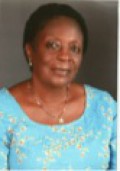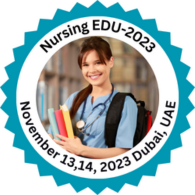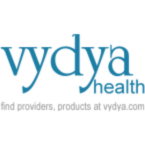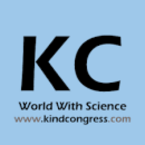About Conference
The Nursing EDU-2023 is delighted to invite you to the “25th World Nursing Education Conference”, taking place in Dubai UAE, on November 13-14, 2023. The conference was titled "Nursing Renaissance: Bridging the Past, Transforming the Future".
Aside from Nurse Education and Confirmation Based Practice, the following primary themes were highlighted during the two-day conference, which reflected the latest education research, achievements, and innovations around the globe.
Nursing EDU-2023 shares an insight into the recent research and cutting edge technologies, which gains immense interest with the colossal and exuberant presence of adepts, young and brilliant researchers, Professors, Doctors, and talented student communities.
Nursing Conference goal is to bring together, a multi-disciplinary group of Scientists and Researchers, Professors, Doctors, Nurses from all over the world are invited cordially to present and exchange break-through ideas relating to the and Nursing Care and Primary Health Care promotes top level research and to globalize the quality research in general, thus making discussions, presentations more internationally competitive and focusing attention on the recent outstanding breakthroughs in the field of Nursing Education, and future trends and needs.
We’re looking forward to an excellent meeting of all dignitaries from different countries all around the world to share innovative ideas and exciting trends in Nursing Education which will be held on November 13-14, 2023.
Session&Tracks
Advance Nursing Practice :
Advanced Nursing Practice refers to an elevated level of nursing expertise and autonomy that goes beyond traditional nursing roles. Advanced Practice Nurses (APNs) possess advanced education and specialized training, enabling them to provide comprehensive healthcare services, make independent clinical decisions, and prescribe medications in certain jurisdictions. APNs often specialize in areas like nurse practitioners, clinical nurse specialists, nurse anesthetists, and nurse midwives.
Evidence-Based Clinical Practice:
Evidence-Based Clinical Practice involves integrating the best available scientific evidence with clinical expertise and patient preferences to make informed healthcare decisions. By critically appraising research findings and applying them to individual patients, healthcare providers ensure that their interventions are grounded in proven effectiveness and safety. This approach enhances patient outcomes, reduces variations in care, and fosters a culture of continuous learning and improvement in the healthcare field. Evidence-Based Clinical Practice empowers clinicians to deliver the highest standard of care, aligning medical decisions with the latest research and patient values.
Nursing Research:
Nursing research is a systematic inquiry that explores various aspects of nursing practice, education, and policy. It aims to generate knowledge, improve patient care, and advance the nursing profession. Through rigorous methodologies, such as quantitative and qualitative studies, nursing research examines issues like patient outcomes, healthcare interventions, and the impact of nursing practices on public health. By fostering evidence-based practices, nursing research empowers nurses to provide high-quality, safe, and compassionate care while contributing to the overall advancement of healthcare.
Heart and Cardiovascular Nursing:
Heart and Cardiovascular Nursing is a specialized field focused on the prevention, management, and treatment of heart-related conditions. These nurses play a crucial role in caring for patients with various cardiovascular disorders, such as heart disease, hypertension, and heart failure. They provide critical interventions, monitor vital signs, administer medications, and educate patients on heart-healthy lifestyles. With their expertise, compassion, and dedication, heart and cardiovascular nurses contribute significantly to improving patients' cardiovascular health and overall well-being.
Geriatrics and Gerontology Nursing:
Geriatrics and Gerontology Nursing is a specialized area that focuses on providing comprehensive care for elderly individuals. These nurses address the unique healthcare needs and challenges associated with aging, including chronic conditions, cognitive decline, and end-of-life care. They emphasize promoting independence, ensuring safety, and enhancing the quality of life for older adults. With a deep understanding of the aging process and a compassionate approach, geriatrics and gerontology nurses play a vital role in supporting the health and well-being of the elderly population.
Travel Nursing:
Travel Nursing is a dynamic profession that allows nurses to work in various healthcare settings and locations on temporary assignments. These nurses have the opportunity to explore different regions, experience diverse healthcare cultures, and make a significant impact on patient care. Travel nurses often fill staffing gaps, providing essential support during peak demand or in underserved areas. With their adaptability, expertise, and adventurous spirit, travel nurses contribute to improving healthcare access and delivering quality care across the country or even internationally.
Women's Health Nursing:
Women's Health Nursing is a specialized field dedicated to providing comprehensive care to women throughout their lifespan. These nurses focus on addressing women's unique health needs, including reproductive health, pregnancy, childbirth, and menopause. They offer support, education, and advocacy for women's health concerns, promoting preventive care and empowering women to make informed decisions about their well-being. With sensitivity and expertise, women's health nurses play a pivotal role in enhancing the health and quality of life for women of all ages.
Cancer Nursing:
Cancer Nursing is a specialized area focused on caring for patients with cancer and their families. Cancer nurses provide compassionate and holistic care throughout the cancer journey, from diagnosis to treatment and survivorship. They play a vital role in managing cancer symptoms, administering treatments, and educating patients about their condition and treatment options. These nurses also offer emotional support, helping patients cope with the challenges of cancer and its impact on their lives. With their expertise and dedication, cancer nurses contribute significantly to improving the quality of life and outcomes for individuals facing cancer.
Gerontological Nursing:
Gerontological Nursing is a specialized field of nursing that focuses on providing comprehensive and specialized care to older adults. Gerontological nurses are trained to address the unique health needs and challenges that come with aging, including managing chronic conditions, promoting healthy aging, and addressing social and psychological aspects of elderly patients' well-being. These nurses play a critical role in enhancing the quality of life for older adults by promoting independence, dignity, and autonomy. With their expertise and empathy, gerontological nurses contribute significantly to supporting the health and well-being of the elderly population.
Midwifery and Women's Health Nursing:
Midwifery and Women's Health Nursing is a specialized area of nursing that focuses on providing comprehensive care to women throughout their reproductive journey, from adolescence to menopause. Midwives and women's health nurses play a crucial role in supporting women during pregnancy, childbirth, and postpartum, ensuring safe and positive birthing experiences. They also address women's health needs beyond childbirth, offering preventive care, family planning, and counseling on various health issues specific to women. With their expertise in maternal and reproductive health, these nurses promote women's well-being and contribute to healthier communities.
Nursing Safety:
Nursing safety is a critical aspect of healthcare that focuses on ensuring the well-being of nurses and patients. It encompasses various measures and practices designed to prevent errors, reduce risks, and promote a safe and supportive work environment for nursing professionals. Key elements of nursing safety include:
Patient Safety: Implementing protocols and best practices to prevent medical errors, infections, and adverse events, ensuring the highest level of care and safety for patients.
Medication Safety: Adhering to medication administration guidelines, using barcode scanning systems, and conducting thorough medication reconciliations to minimize medication errors.
Infection Control: Following strict infection control measures to prevent the spread of infections within healthcare facilities and protecting both patients and healthcare workers.\
Dental Nursing:
Dental Nursing is a specialized area of nursing that supports dentists in providing dental care and treatment to patients. Dental nurses assist during dental procedures, sterilize instruments, take X-rays, and provide patient education on oral hygiene. They play a crucial role in ensuring a safe and comfortable environment for patients while maintaining strict infection control standards. With their expertise and dedication, dental nurses contribute significantly to promoting good oral health and enhancing the overall dental experience for patients.
Innovations in Nursing Education: The nursing profession has long embraced innovation–in professional in education and practice. Nurses are motivated to engage in innovative practices primarily because they seek to improve patient experiences, health outcomes and nursing practice.
Simulation-Based Learning: Virtual patient simulations and realistic clinical scenarios allow students to practice skills and decision-making in a risk-free environment, enhancing clinical competence.
Telehealth Training: Nursing education is incorporating telehealth training, preparing students to provide remote patient care and leverage technology for healthcare delivery.
Gamification and Interactive Learning: Gamified learning platforms engage students through interactive quizzes, challenges, and exercises, making the learning process more enjoyable and effective.
Augmented Reality (AR) and Virtual Reality (VR): AR and VR technologies are used to visualize complex medical concepts and immerse students in realistic clinical environments for enhanced learning experiences.
Oncology Nursing:
Oncology nursing focuses on the care of patients diagnosed with cancer. Oncology nurses work with patients throughout the cancer journey, from diagnosis to treatment and even end-of-life care. They provide emotional support, manage treatment, and educate patients and their families about the disease, its treatment options, and how to manage symptoms and side effects. Nursing Conferences 2023 invites the global experts make their presence and have a discussion on its betterment of oncology.
Role of Nurses in Digital Health:
Nurses play a crucial role in digital health, which refers to the use of technology to improve healthcare delivery and outcomes. Nurses can use digital health technologies to collect and analyze patient data, such as vital signs, medication adherence, and symptom tracking. This can help identify patterns and trends that can inform clinical decision-making and improve patient outcomes.
Market Analysis
The nursing education market has been witnessing steady growth over the years, driven by the increasing demand for qualified nurses worldwide. Factors such as the aging population, rising chronic diseases, and advancements in healthcare technology have led to a greater need for well-trained and skilled nursing professionals.
Key Trends:
Online and Remote Learning: The market has witnessed a significant shift towards online and remote nursing education programs. E-learning platforms and virtual simulations have become popular choices for nursing students due to their flexibility and accessibility.
Specialization and Continuing Education: With advancements in medical research and healthcare practices, nurses seek specialized certifications and continuing education to stay updated with the latest developments in their field. This trend has led to the growth of postgraduate nursing programs and advanced practice nursing specialties.|
Interprofessional Education (IPE): Nursing education is increasingly emphasizing collaborative learning experiences with other healthcare disciplines, preparing nurses for interdisciplinary teamwork and improving patient outcomes.
Focus on Cultural Competence and Diversity: Nursing education programs are placing a greater emphasis on cultural competence training to address the diverse healthcare needs of patient populations and promote equitable care.
Technology Integration: The integration of innovative technologies, such as virtual reality, augmented reality, and simulation, is enhancing nursing education, offering students more immersive and interactive learning experiences.
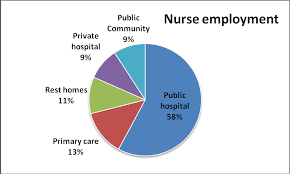
Challenges:
Faculty Shortage: The shortage of nursing faculty poses a significant challenge to expanding nursing education programs, limiting the number of students who can be trained.
Cost of Education: The cost of nursing education can be a barrier for many aspiring nurses, leading to student loan debt and potential financial constraints.
Clinical Placement Availability: Securing sufficient clinical placements for nursing students can be challenging, particularly in high-demand healthcare facilities.
Opportunities:
Global Demand for Nurses: The global shortage of nurses presents a significant opportunity for nursing education providers to meet the growing demand for qualified nursing professionals.
Lifelong Learning and Continuing Education: The need for continuous professional development and specialized training creates opportunities for nursing education providers to offer a wide range of continuing education programs.
Technology Partnerships: Collaboration with healthcare technology companies can provide nursing education institutions with access to cutting-edge learning tools and platforms.
Advantages Nursing EDU-2023
Degree and Importance of World Nursing Education 2023 as it plans to find progresses in healthcare practice, the board and The Nursing calling all in all just as an expansiveness of different themes. As per the reports, Healthcare is one of the fastestâ€growing ventures. The maturing of our populace fills an expanding interest for longâ€term care and endâ€ofâ€life administrations. Skilled nursing care has likewise extended in schools and retail facilities and in the arrangement of emotional healthcare administrations. This interest has brought about low joblessness rates among medical nurses, going from about 0.8% among nurture specialists and nurse anesthetists to 4.3% among authorized pragmatic and authorized professional medical nurses.
Who can attend?
Nursing Education 2023 unites people who have an enthusiasm for various fields of nursing like psychiatric, cancer, cardiac, critical care, adult & women health, legal, pediatrics and emergency nursing, midwifery, public health, healthcare and medicine from practice, research, administration, policy and education and particularly the individuals who energize men in the calling of nursing. It is a discussion to investigate issues of common worry just as trade information, share proof, thoughts, and produce arrangements.
Target Audience:
-
Nurses and Nursing Students
-
Nursing Researchers
-
Nursing Professors and Faculty
-
Medical College students
-
Clinical Nursing & Midwifery Associations
-
Primary Healthcare Professionals
-
Nursing Associations and Societies
-
Nursing Business Entrepreneurs
-
Nursing Training Institutes
-
Nursing Equipment designing companies
-
Medical Devices Software Developer Companies
-
Pharmaceutical Companies
-
Physician assistants
-
Advanced practice nurses
-
Clinical research nurses and social workers
-
Business Entrepreneurs






